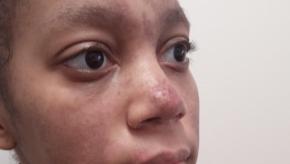All News
Damage in Childhood Lupus
d
EurekAlert!
Childhood lupus (cSLE) is a rare multisystem disorder with significant associated morbidity, but evidence-based guidelines are sparse, and as such management is often based on clinical expertise.
Read ArticleRA: update for women of child bearing potential (and men!)
Fertility in the context of RMDs is a daily concern for a lot of rheumatologists and patients.
EULAR this year proposed new fertility data, especially in Rheumatoid Arthritis, along with an update of the EULAR points to consider for use of antirheumatic drugs in reproduction, pregnancy and lactation.

EULAR 2024: Wednesday’s Topic Panel (RA) with RheumNow https://t.co/j83v8JeTXh
Links:
Dr. John Cush RheumNow ( View Tweet)

Transition from Psoriasis to PsA: Can we Prevent It?
Dr. Aurelie Najm discusses abstract OP0010 presented at Eular 2024 in Vienna, Austria.
https://t.co/MnHG9DgA3H https://t.co/Vht33gWVlC
Dr. John Cush RheumNow ( View Tweet)

Top 3 Messages About JAK Inhibitor Safety
Dr. Janet Pope discusses a debate she participated in at Eular 2024 in Vienna, Austria, and her top three messages regarding JAKi safety.
https://t.co/HKapiAIHSs https://t.co/QrO4pVNOTo
Dr. John Cush RheumNow ( View Tweet)

When patients say their joints are swollen, what does it mean?
Easy to dismiss it as a symptom, but this clinically suspect arthralgia cohort from Leiden shows:
- some correlation w/ MRI/USS findings
- predicts RA development
- still worthwhile!
#EULAR2024 POS0609 @drdavidliew https://t.co/cRl5ow1emE
Dr. John Cush RheumNow ( View Tweet)
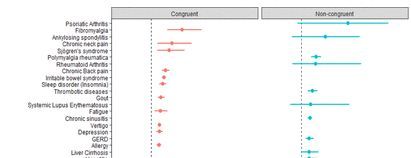
ComOA- a cohort study from 3.4 million, 4 countries looked at OA (n=845K) & comorbidities. Tops were LBP (44%), HTN, (34%), allergy (21%), cataract (16%), vertigo (14%), depression (13%), DM (13%). After OA Dx: Fm, RA, PMR OP0230 #EULAR2024 https://t.co/GMVCHSfyt0 https://t.co/KFlacpHfAX
Dr. John Cush RheumNow ( View Tweet)
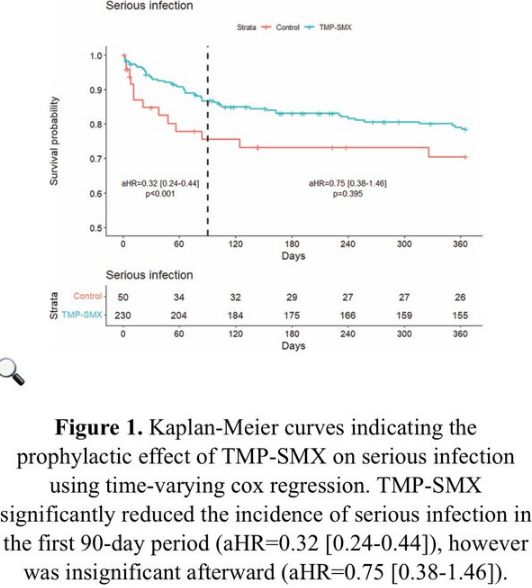
#POS0234 The effect of prophylactic Septrin in ANCA #vasculitis pts treated with RTX/CyC need further characterisation. Multicentre study in Korea showed protective effect on Serious Infection btw those treated vs not. Effect was seen in the 1st 3mths only
#EULAR2024 @Yuz6Yusof https://t.co/tOOvvVynKA
Dr. John Cush RheumNow ( View Tweet)
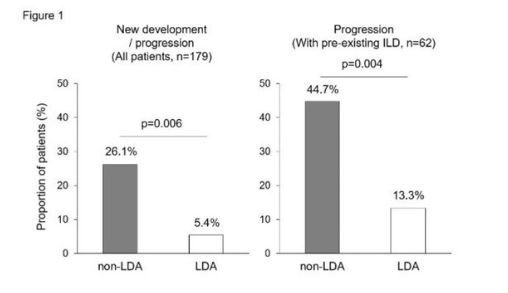
Another proof (if needed) that controlling Dz Activity in RA is a very important preventive measure in RA!
179 pts
ILD newly developed 9.5%
progressed 12.3%
no change 74.9%
improved 4.5%
5.7% in the LDA group 28.0% non-LDA group (p=0.006)
#EULAR2024 POS0408 @AurelieRheumo https://t.co/lKUY32KFiX
Dr. John Cush RheumNow ( View Tweet)

Impact of regulatory warning on JAK inhibitors
JAK inhibitors show promise for treating inflammatory rheumatic diseases, but ORAL surveillance 2022 found increased risk of MACE, cancer, and death.
https://t.co/BEYgUg1DF4 https://t.co/tsjOZ6emDg
Dr. John Cush RheumNow ( View Tweet)

Is a Biomarker for Adverse Pregnancy Outcomes on the Horizon?
Pregnancy in lupus patients raises concerns due to potential complications like preeclampsia, eclampsia, and increased mortality rates for both mother and baby.
https://t.co/Kv6F21UHze https://t.co/ya8lAkSLC2
Dr. John Cush RheumNow ( View Tweet)

Might Synovial Biopsy Predict Rheumatoid Treatment Responses?
Multi-modal analysis of rheumatoid arthritis (RA) synovitis pathotypes enables more accurate choices of first line cDMARDs treatment, suggesting a predictive value to synovial biopsy.
https://t.co/bMUzduZIz9 https://t.co/yFxCvoZukM
Dr. John Cush RheumNow ( View Tweet)

EULAR 2024: Tuesday’s Topic Panel (PSA) with RheumNow https://t.co/j4I1bC9ROD
Links:
Dr. John Cush RheumNow ( View Tweet)

Does Telemonitoring in SpA Work?
Dr. Antoni Chan reports on abstract OP0120 from Eular 2024 in Vienna, Austria.
https://t.co/UUmnsAdx0t https://t.co/NE36OtKBwK
Dr. John Cush RheumNow ( View Tweet)

Pain in RA: Different Drugs for Different Mechanisms
Dr. Aurelie Najm reports from Eular 2024 in Vienna, Austria, about abstracts OP0072 and OP0086.
https://t.co/Q7CZoHpDmc https://t.co/cvIRhBJt9Z
Dr. John Cush RheumNow ( View Tweet)

Do MRI changes at the Spine and SI Joints in Treatment of AxSpA Matter?
Dr. Eric Ruderman discusses abstracts OP0046 and POS0058 presented at Eular 2024 in Vienna, Austria.
https://t.co/hYy7Wg2GMJ https://t.co/GVjtf89c3t
Dr. John Cush RheumNow ( View Tweet)

Matters of the heart: cardiovascular disease and mortality in RA
Patients with RA have up to 2x higher risk of coronary artery disease, plus increased atrial fibrillation and stroke risk.
https://t.co/wFs7ds3tF2 https://t.co/GWyXJbeyIn
Dr. John Cush RheumNow ( View Tweet)
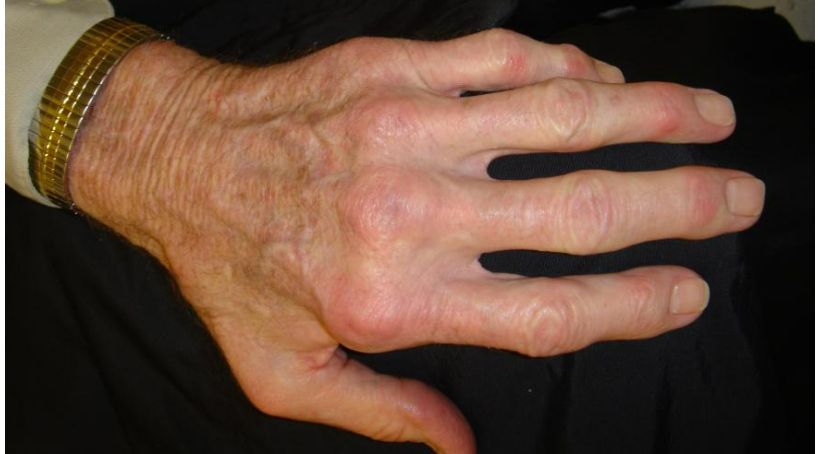
EULAR 2024 – Day 2 Report (A Difficult RA Day)
Day 2 at EULAR 2024 was a big poster day for many with several good sessions and oral presentations on Preventing RA, new vasculitis therapies and more.
https://t.co/EQ6yC1Sll7 https://t.co/32JHs2KcmW
Dr. John Cush RheumNow ( View Tweet)
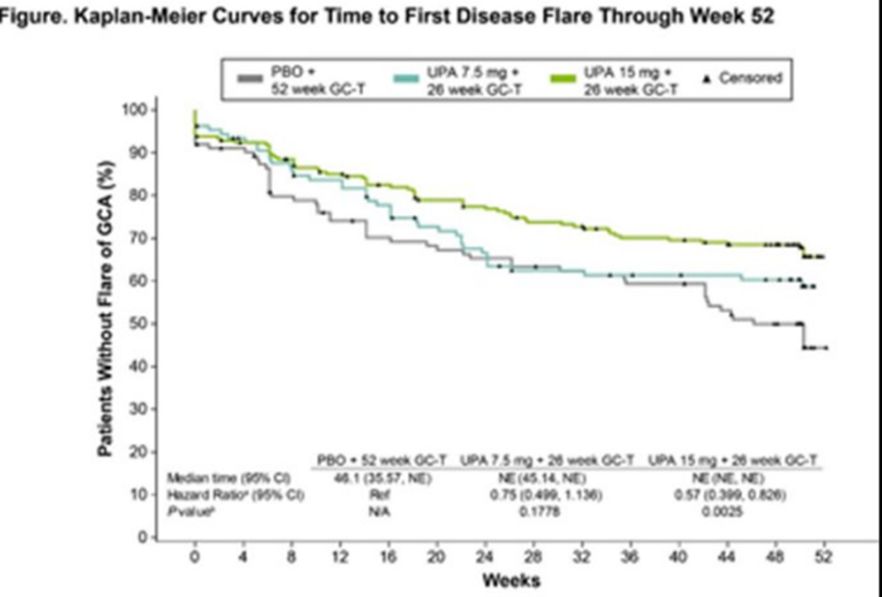
RCT of #upadacitinib in #GCA
It works to steroid spare
15 mg > 7.5 mg in outcomes
Both >>placebo
Ethically PBO had slower #prednisone taper
Similar to #TCZ data
What to choose in GCA
IL6i?
IL17i?
JAKi?
@eular_org
# LBA0001 @Janetbirdope https://t.co/DGOltriVYF
Dr. John Cush RheumNow ( View Tweet)

Inflammatory bowel disease in spondyloarthritis - does it matter?
Do the clinical features of axSpA patients with and without IBD differ?
https://t.co/t0wJRXXH0a https://t.co/iZsiP1AgWh
Dr. John Cush RheumNow ( View Tweet)


